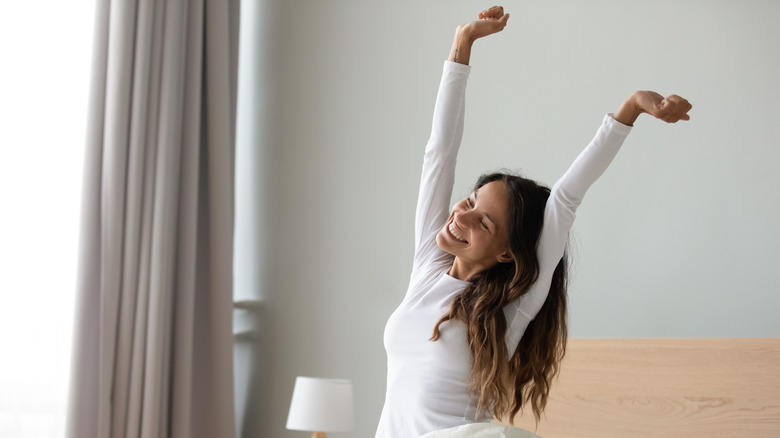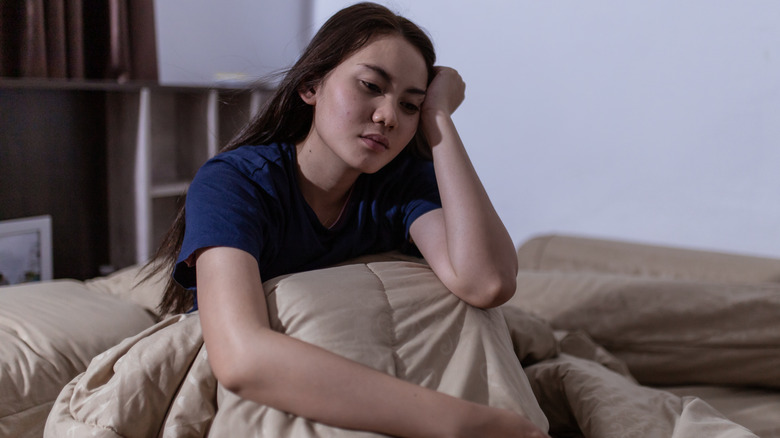Do you experience worsening anxiety at night? This can be a frustrating experience, especially when you’re exhausted and just want to get a good night’s rest. According to BetterHelp, anxiety that gets worse at nighttime is not uncommon among people with anxiety disorders. It can keep you from sleeping, causing an increase in anxiety, thus creating a vicious cycle. Left untreated, your sleep and anxiety may both worsen. Healthline points out that when you’re trying to sleep, you’re left in the dark and quiet, without distractions. As a result, your mind can start going into overdrive. You may experience intrusive thoughts, worrying, and ruminating over past mistakes.
Symptoms of nighttime anxiety can include aches and pains, trouble breathing, nervousness, restlessness, nightmares, and panic attacks, according to Medical News Today. If you experience anxiety at night, may also experience fear about the next day and worry about how your lack of sleep will affect you. However, nighttime anxiety is treatable. Here’s how.
Treatment for nighttime anxiety

BetterHelp recommends making an appointment with your doctor to discuss cognitive behavioral therapy, medications, or both to help treat your nighttime anxiety. In the meantime, create a bedtime routine that enables you to unwind, such as taking a bath, drinking some caffeine-free tea, reading a book, doing some light, relaxing yoga, journaling, meditating, or practicing breathing exercises. Avoid stimulating activities like being on your phone or other device or watching television.
Well+Good recommends managing your stress and anxiety throughout the day so it doesn’t pile on at bedtime. According to the National Sleep Foundation, you should avoid caffeine and alcohol in the afternoon and evening. Keep your bedroom dark, cool, and quiet. If at all possible, try to go to bed and wake up at the same times each day. Try out the different relaxation techniques and see what works best for you to help you reduce nighttime anxiety.




